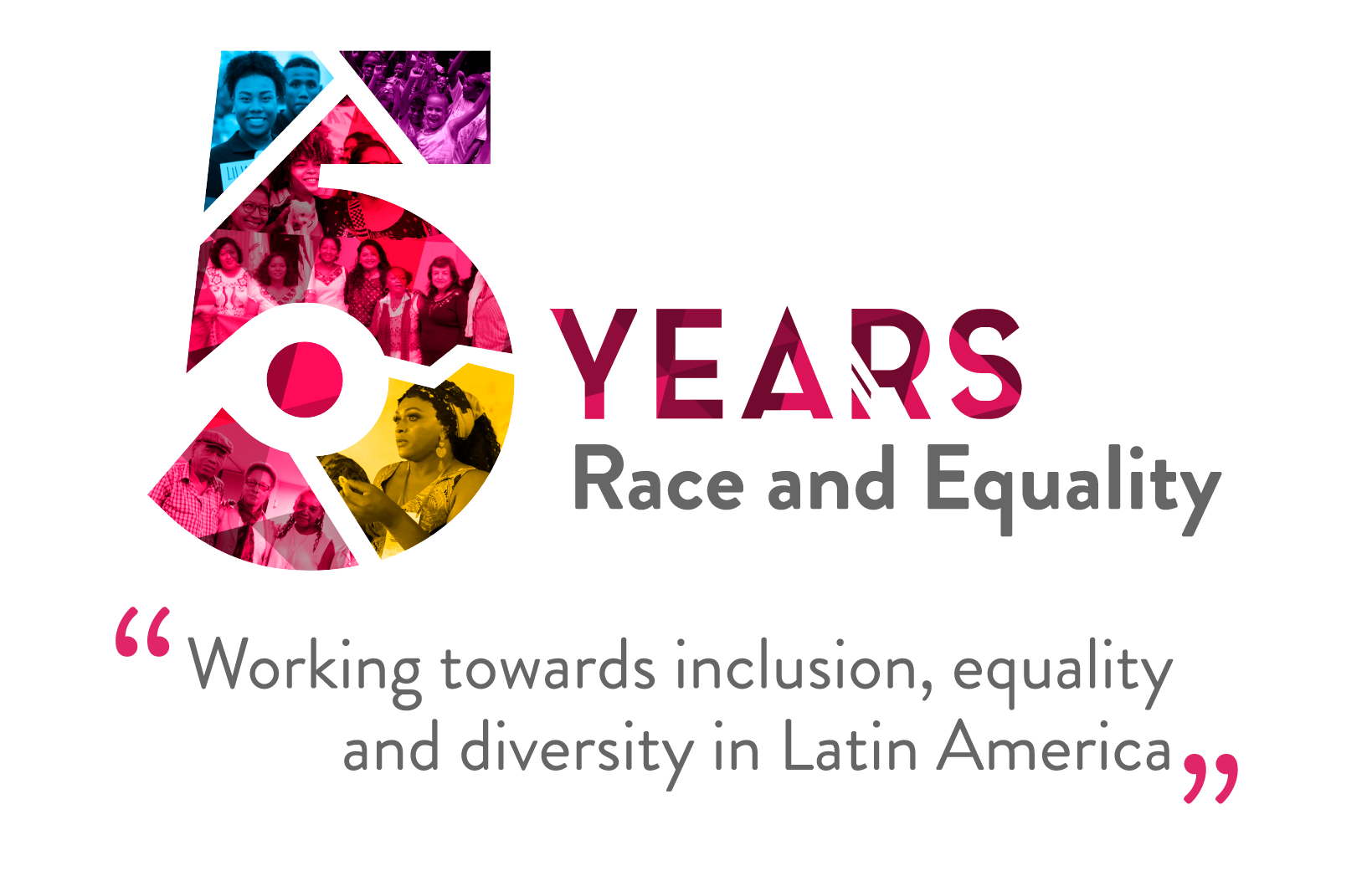Five years working towards inclusion, equality, and diversity in Latin America”
Five years after the founding of the International Institute on Race, Equality and Human Rights (Race and Equality), it is valuable to take a step back and revisit our beginnings, […]

Five years after the founding of the International Institute on Race, Equality and Human Rights (Race and Equality), it is valuable to take a step back and revisit our beginnings, the work we have done and how it has changed, the achievements we have made and the challenges that still face us.
In November 2014, an opportunity arose to create a new organization dedicated to fighting racial discrimination and discrimination based on sexual orientation and gender identity. Two months later, in January 2015, Race and Equality was born. To this day, we are the only organization in the region addressing these two issues and bringing a lens of Afro-LGBTQ intersectionality before the Inter-American and universal human rights systems.
Five years ago, we began working in Washington, D.C. with eight counterpart organizations in Cuba, Colombia, Brazil and Peru. Today, our team includes twenty-five people in Washington, Bogota and Geneva, collaborating with over fifty partners in eight countries through organizational partnerships and contractual agreements. Today, we work not only on issues of discrimination, but have expanded to address violations of civil and political rights, especially in Cuba and Nicaragua, and to assist with the integration of racial and ethnic data into national census processes, as we have done in Panama, Peru and Mexico.
Race and Equality’s methodology emphasizes building the capacity of our partners so that they can utilize both the Inter-American and universal human rights systems. We have helped our partners become familiar with regional and international human rights protection mechanisms and learn to utilize them. In this model, we work behind the scenes to support our partners, who are the protagonists and the drivers of change.
In the Inter-American system, we have supported local organizations so that they can take part in thematic hearings of the Inter-American Commission on Human Rights (IACHR) and the General Assembly of the Organization of American States (OAS), document and denounce human rights violations and raise awareness about the issues facing the Afro-LGBT population. We work closely with the IACHR’s Rapporteurship on Persons of African Descent. We have secured precautionary measures from the IACHR for partners in Cuba, Colombia and Nicaragua and provisional measures from the Inter-American Court of Human Rights for partners in Nicaragua.
In the universal system, we have facilitated the participation of activists from the entire region in United Nations mechanisms where they can advocate first-hand for their rights and the rights of their communities. Our partners have engaged with High Commissioner for Human Rights Michelle Bachelet, the Universal Period Review (UPR) process and country reviews by the Committee on the Elimination of Discrimination against Women (CEDAW) and the Committee on the Elimination of Racial Discrimination (CERD).
We have responded to the severe human rights crisis that has gripped Nicaragua since April 2018 by providing technical support for the documentation of human rights violations, shining a spotlight on the situation of political prisoners and organizing meetings between local activists and international human rights actors. In Cuba, we continue to highlight the constant rights violations that our partners suffer solely because of their beliefs and to push for the Cuban government to honor its international obligations. In Colombia, we are working to monitor the implementation of the Ethnic Chapter of the Peace Accords and the situation of the Afro-LGBTQ community, in light of the persistence of violence and the crisis of killings of social leaders.
One of our proudest achievements during these last five years was the ratification of the Inter-American Convention against Racism, Racial Discrimination and Related Forms of Intolerance by Costa Rica and Uruguay. These two ratifications allowed the Convention to come into effect.
We continue to grow as an organization, although unfortunately we do so for all the wrong reasons: the situation for human rights across Latin America is concerning. Over the last five years, racial discrimination has worsened in across the region. Leaders are legitimizing racist, homophobic and transphobic discourse, putting under threat the rights that marginalized people won in the previous 10-15 years. Backsliding on civil and political rights is evident in recent events in Nicaragua, Venezuela, Colombia, Cuba, Brazil and Chile, to mention only a few. Despite these many challenges, we are confident that Race and Equality is well-positioned to offer technical assistance to our partners and continue making the human rights situation in the region visible on the international stage.
I want to thank everyone who has trusted us and trusted in our abilities: our partners and especially our donors, whose support allows us to confront human rights violations effectively and efficiently.
Carlos Quesada
Executive Director
International Institute on Race, Equality and Human Rights

